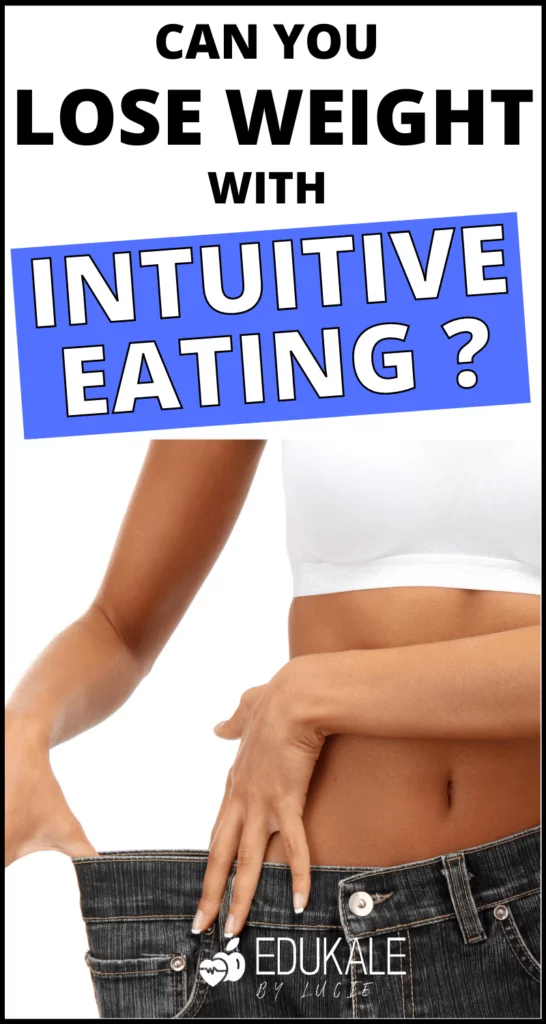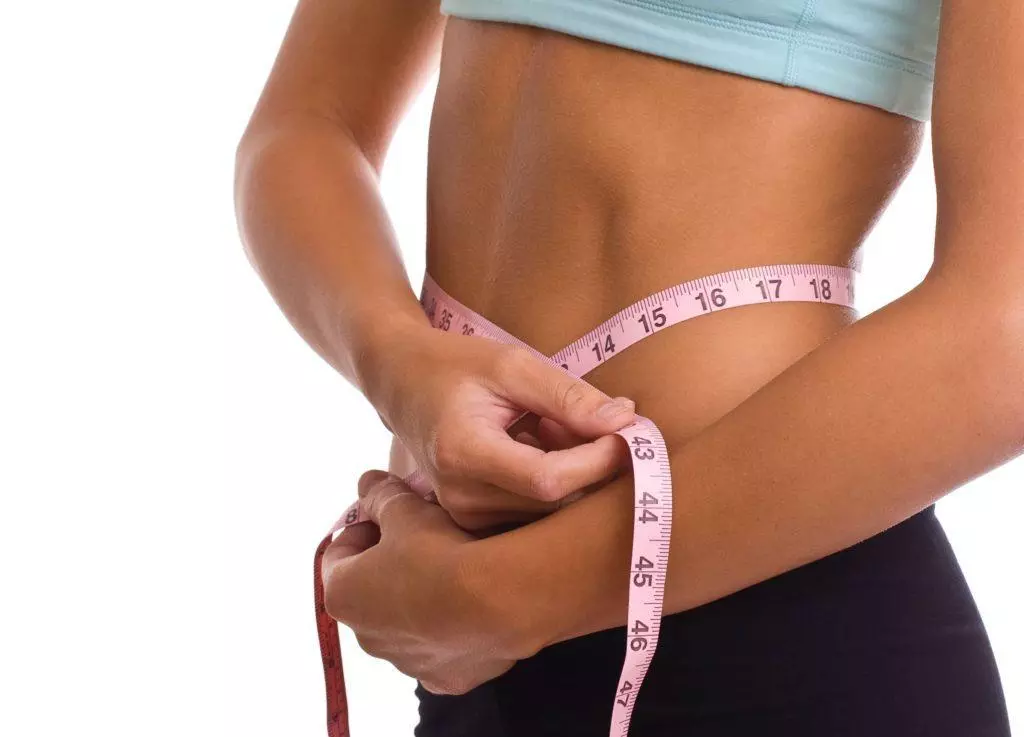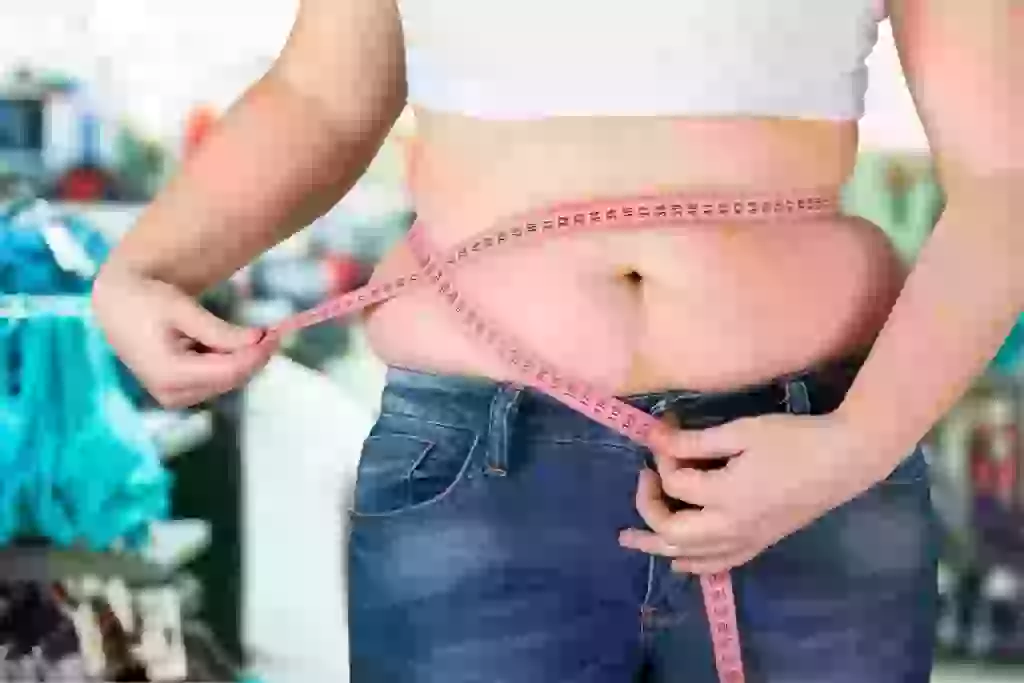This post contains affiliate links from which I may receive a small commission, at no extra cost to you. In no way does this affect my opinion or the information I provide on the product. Please read my disclaimer for more info.
If you’ve been reading my articles for a while, you probably know that I eat intuitively and love to promote this way of eating.
This has led to many questions surrounding weight, with people wondering whether or not it was possible to lose weight with intuitive eating. While the short answer is yes, the longer answer may not exactly be what you’d expect.
Here’s the truth on intuitive eating and weight loss.

What is intuitive eating?
Intuitive eating is an evidence-based approach that frees you from food rules and restrictions and promotes a healthy relationship with food. It involves many principles, such as honoring your hunger and fullness cues, making peace with food, respecting your body, and putting your health first.
It was created by two dieticians, Evelyn Tribole and Elyse Resch. Intuitive eating is not a diet or food plan, but rather a way of life that aims to free you from diet culture.
Here are a few other articles I wrote on intuitive eating if you’re interested:
- What is intuitive eating and is it for everyone
- The intuitive eating hunger scale
- Intuitive eating during the holidays
Can you lose weight with intuitive eating?

Understanding set point theory
Since intuitive eating revolves around listening to your hunger and fullness cues and being in alignment with your body’s needs, it will lead to finding your natural weight, also known as your set point weight.
Simply put, this is the weight your body wants to be at without making any particular effort to maintain it. This is your biologically and genetically determined weight range that your body will fight to stay in.
However, it’s difficult to know whether your set point weight will be higher or lower than the weight you are currently at. If your current weight is higher than your set point, then you will lose weight with intuitive eating. However, if it’s lower, you will gain weight. You may also already be within your set point range, in which case your weight may not move at all.
In any case, intuitive eating will allow you to reach the optimal weight for your body, and that is what you should be focusing on. Check out my article on set point theory if you’re interested in learning more!
Weight loss can happen, but shouldn’t be the main focus
While studies [1] do show that intuitive eating is inversely associated with being overweight or obese, it’s important to note that intuitive eating is not a weight-loss method. You should not be turning to intuitive eating to lose weight, but rather to build a healthy relationship with food and learn how to listen to your body’s signals.
Reaching your natural set point may also take time: if you’re in it for the weight loss, you might find yourself “giving up” on intuitive eating. Using intuitive eating as just another way to lose weight would defeat its whole purpose.
However, in many cases, your restrictive dieting is causing you to have frequent cheat meals or bingeing episodes, which lead to weight gain even if you feel like you aren’t eating a lot.
Turning to intuitive eating would mean letting go of these restrictions. By allowing yourself to eat any type of food when the desire comes, you are less likely to binge on these foods. Your calories will be more evenly spread out across your meals, and will likely add up to less.

However, you could also feel that you are eating healthily, that your portions are small, and that you don’t have any bingeing or cheat meal episodes, making it hard to understand why you aren’t losing weight.
Well, our bodies are very complex, and it’s possible that you are restricting your calorie intake so much that you are actually starving yourself. Depriving yourself of food leads to energy-saving adaptations, essentially preventing you from losing weight [2, 3].
These are good mechanisms that are put in place to help you survive, but obviously, you don’t want to trigger them if you don’t need to. Turning to a more mindful and intuitive approach to eating will have you listening to your hunger cues instead of calories and will help you leave this energy-saving mode. In order to burn calories, you actually need to consume enough calories!!
Will I gain weight with intuitive eating?
Since you can’t be sure how your current weight compares to your set-point weight, it may be possible that you gain weight when turning to intuitive eating.

Beyond that, letting go of food rules can often be accompanied by an initial weight gain phase. After depriving yourself of certain foods for so many years, finally being allowed to eat them again will probably lead to overeating.
Your body is so used to being restricted from these foods. When the possibility to eat them arrives, it goes all-in to stock back up, anticipating the next restriction phase. After a while, your body will start to realize that there are no more restriction phases now, and that these foods can be enjoyed in moderation whenever.
This is a normal phenomenon that often leads to some temporary weight gain— but it’s important to stick with the process regardless.
It’s also important to focus on long-term goals instead of immediate gratification. Even if the weight you gain as you let go of your food rules doesn’t satisfy you right now, try to picture yourself a few months later, reaching your set point weight and having a healthy relationship with food.
Wouldn’t it be worth it?
What if I want to lose weight?
If your main goal is to actively lose weight, fully committing to intuitive eating and breaking free from food rules is probably not what you are looking for right now. However, dieting is not an effective tool for weight loss (check out my article on why diets don’t work here!), and if you wish to go under your set point weight, your biological response will be to fight against it [4].

So why not try a happy medium? It’s possible to apply some of the intuitive eating principles to your way of eating, all while maintaining certain food rules that are helpful to you.
For instance, you may decide to follow the principle that suggests choosing healthy and tasty foods that make you feel good, but not the one which involves giving yourself unconditional permission to eat. You may feel more comfortable giving yourself set times and portions to eat, all while wishing to challenge your rules around “good” and “bad” foods.
It’s absolutely possible to lose weight by focusing on choosing mainly whole, minimally processed foods, having balanced yet delicious meals, eating more mindfully, and following the principles that resonate with you. It just needs to be integrated into your lifestyle in a sustainable way instead of following a “lose weight fast with X diet” approach.
You still need to keep in mind that this is not intuitive eating though— you are just deciding to adapt some of its principles to your diet. I’m insisting on this point because I don’t want you to see intuitive eating as “just another diet” that will ultimately end up failing.
If you are following all of its principles, intuitive eating can never fail, simply because weight loss is not the end goal. If you are cherry-picking which intuitive eating aspects to follow all while actively trying to lose weight, then it might fail— but in this case, it was never intuitive eating. Again, this is totally fine, but it’s important not to get everything mixed up.

Intuitive eating and weight loss in conclusion
While it may lead to weight loss, the main purpose of intuitive eating is not to lose weight. Its actual goal is to improve your relationship with food and listen to your body’s cues instead of outside rules and regulations.
When you start eating intuitively, you may even have an initial weight gain phase before your body settles into its set point. If you wish to lose weight, you can adapt some of the intuitive eating principles to your way of eating, all while maintaining certain food rules that are helpful to you.
-Lucie
If you’re interested in nutrition, its impact on our health, and the science behind it, you should definitely read How Not to Die. In this book, Doctor Michael Greger, founder of Nutrition Facts, examines the top causes of death in America and explains how your diet can prevent— and in some cases even reverse— them. His advice is all backed by science and he writes in a very clear and entertaining way. This book isn’t a list of what you already know. It will teach you the keys to living a long healthy life, in a simple and practical way, and without spending fortunes on supplements and pills!
PLUS if you want to take it a step further, you can check out the How Not to Die Cookbook to implement the advice easily!


